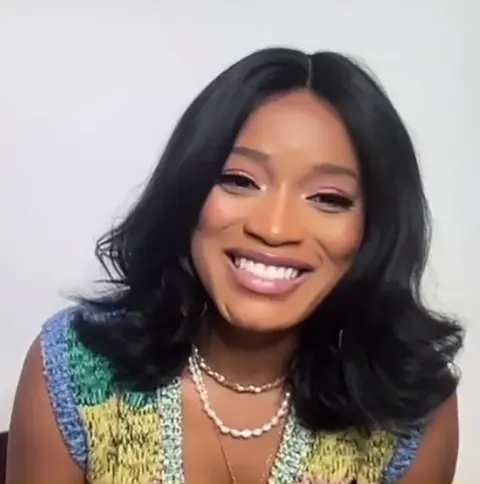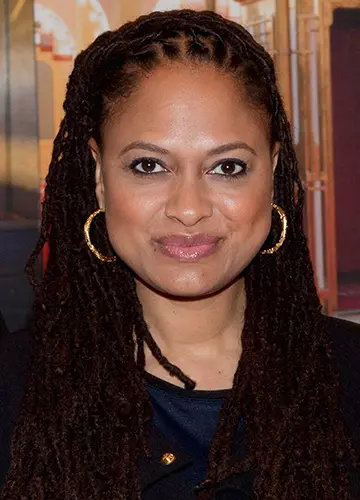Summary
Through spotlighting Keke Palmer and Ava Duvernay, we explore the challenges of navigating industries with limited access to information and representation. From Keke's bold approach to seizing opportunities to Ava's innovative response to industry barriers, both women exemplify resilience and legacy. As they break down barriers and pave the way for others, their stories inspire us to take risks, pay it forward, and strive for equitable access.
Have you ever felt like you weren’t clued in on the inside scoop? Whether career or entrepreneurial opportunities, access to information is not equitable. Many of us uncover hidden information over time, follow our gut, and piece everything together ourselves. Without a blueprint, we only succeed through trial and error.
After some success, but more stumbles, we see the right path, enter the right spaces, and make the right connections. Somewhere down the line when we have made significant progress, we look back and think “Wow, I wish I knew then what I know now” because back then, we didn’t even know what we did not know.
Without a blueprint, we have to chart our own path. Often our first glance at the right way forward arrives by watching someone who looks like us succeed.
So how do we chart a path forward? Keke Palmer and Ava Duvernay show us how it is done. From perfecting the art of the bag to building unique career paths, they show us that a closed door is an invitation to innovate.
Join us as we explore the stories of these two impactful women who found themselves on the outskirts of industry yet made their mark with impactful flare.

“File:Keke Palmer 2022.jpg.” Wikimedia Commons, 18 May 2022, 14:40 UTC, https://commons.wikimedia.org/w/index.php?title=File:Keke_Palmer_2022.jpg&oldid=657089627. Accessed 5 Mar 2024, 20:22.
Keke “Keep a Bag” Palmer
The economic dilemma in the film industry only became apparent to many during The Hollywood Writer’s Strike. For those outside the industry or struggling to find their footing at its doorstep, this served as a severe wake-up call.
From Billy Porter to Taraji P. Henson, Black professionals have revealed financial instability and how they continue to be undervalued by the industry. The story of the multi-hyphenate with alternative streams of income is more relevant than ever!
Experiencing colorism and character profiling early on in her career, Keke Palmer has always been about business, knowing full well that the film industry struggles with employing diverse talent.
Earlier this year, Palmer told Teen Vogue that the main thing she wants “her legacies to be is [a call] to use your power for good, to use what you have to create spaces and systems for other people to thrive…I don’t believe in gatekeeping.”
Queen of the side hustle, she stays ready to capitalize on a business opportunity. Here are some key lessons we can learn from how Palmer leans in:
Lession #1: Shoot Your Shot
- Palmer secured her role on the movie Nope by sending a direct message to the director, Jordan Peele. She finessed her way onto an episode of the hit series Insecure by mentioning creator, Issa Rae, in a tweet.
Lession #2: Step Outside of Your Comfort Zone
- Being transparent about her acne struggles opened the door for Palmer to become an official spokesperson for popular skincare brand, Olay.
Lession #3: Leave a Legacy and Open Doors
- Throughout her career, Palmer has achieved numerous firsts: the youngest and first Black actress to play Cinderella on Broadway; the first Black woman to star in her own series on Nickelodeon with True Jackson, VP; and the youngest talk-show host with Just Keke. Her next venture, KeyTV, looks to change the equation on accessibly by prioritizing creators and seeking out underrepresented voices.
Although Palmer experienced pushback for her unapologetic personality and refusal to conform in her early career, she tapped into her side hustle work ethic to preserve her autonomy and take control of her work.

“File:Ava DuVernay 2015.jpg.” Wikimedia Commons, 5 Oct 2023, 16:22 UTC, https://commons.wikimedia.org/w/index.php?title=File:Ava_DuVernay_2015.jpg&oldid=808931224. Accessed 5 Mar 2024, 20:24.
Ava Duvernay
Former film publicist and marketer turned filmmaker, Ava Duvernay, didn’t pick up a camera until the age of 32, completely at odds with the pedigreed path of more typical Hollywood directors. She hadn’t even considered a film career. What’s more, she never went to school for it either!
Her newest project Origin which explores the effects of class and caste, required even her, the first woman of color to direct a $100 million film, to turn to her independent filmmaker roots after rejection by major studios. Duvernay hasn’t hesitated to address the industry’s lack of access for people of color and women. After the success of Origin, she took to the media to underscore how even she continues to encounter invisible barriers.
Her response to the funding predicament was to build a bridge around it. Harnessing her relationships, she was able to collect investments from philanthropic organizations, foundations, and private donors.
This in itself requires paving new paths and learning how to navigate spaces where exclusion meets financing. She has set a new precedent for getting a journalistic film like Origin produced against the odds.
Duvernay understands the gap in what we don’t know and is actively closing it. ARRAY, led by Duvernay, launched Seat16, a first-of-its-kind MasterClass initiative aimed at bringing her film Origin and educational content to thousands of teens. With every donation made, one young person gets a ticket to the film and a free 1-year membership with MasterClass.
By investing in youth skill development and early exposure to critical life topics from her film, Duvernay is making sure that opportunities for aspiration are presented early.
Origin, in theaters now, is based on the book Caste: The Origins of Our Discontents by Isabel Wilkerson—the first African-American woman to win a Pulitzer Prize for her journalism.
As we break the shackles of generational, financial trauma and pursue our dreams of rebuilding Black Wall Street, we open the doors for more accessibility. As we promote, encourage, and provide resources for financial freedom, we prevent inaccessibility. Now is the perfect time to break borders and increase equitable access.
Keke Palmer leaned into the side hustle to find her autonomy and Ava Duvernay mastered the art of the pivot. Both pour back into the community to change the access equation.
We don’t know what we don’t know until we know it! Therefore, start that business, enter that industry, and share your learnings with the community.
Let’s get information into our community faster and further! #BankBlack


















